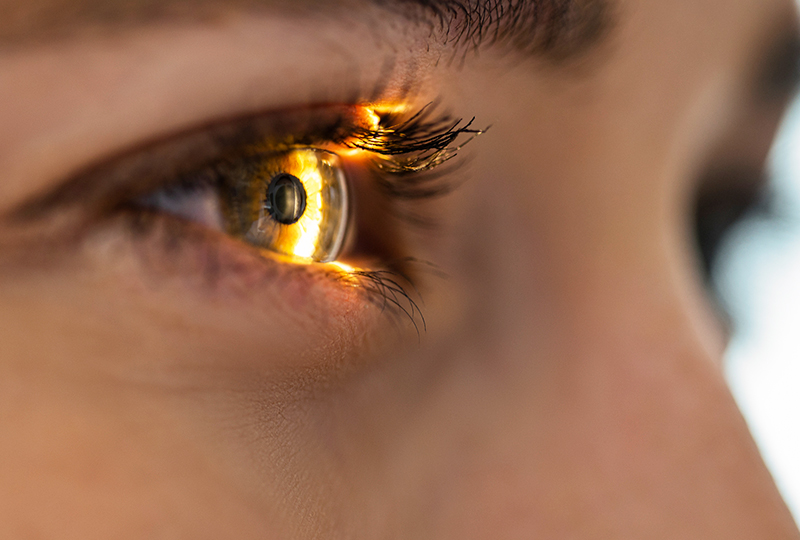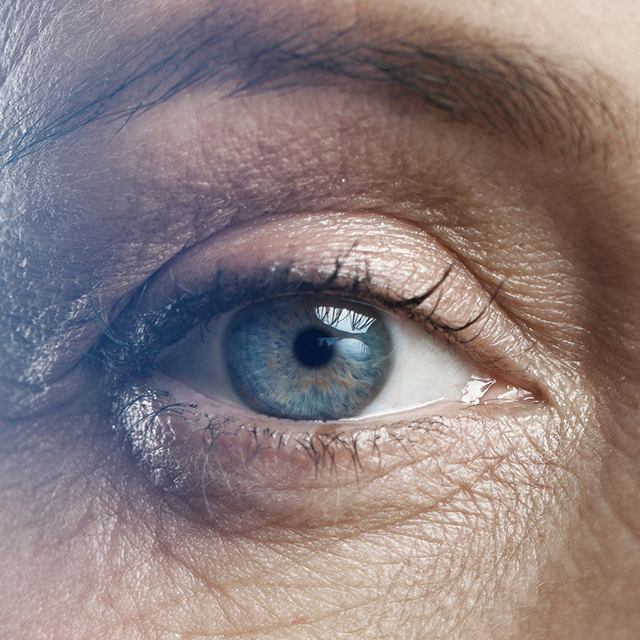Eye exams can help detect serious conditions and life-threatening diseases.
We often get eye exams when we think we need to update our eyeglasses prescription or we’re noticing vision changes. But our eyes are windows to other parts of the body and can even indicate that we have a serious or life-threatening condition we don’t yet know about. For this reason, regular eye checkups are crucial and shouldn’t be put off.
“Eye health is a good indication of overall health. That’s because eye care providers can see the back of your eye, where they can spot issues related to your overall health,” said David Calkins, PhD, vice chairman and director for research at The Vanderbilt Eye Institute.
Eye health and heart health
When your eye doctor looks into the back of your eye, they can see a rich intricate network of blood vessels. Changes to these blood vessels can be a sign of heart disease, stroke, diabetes and even aneurysm, Calkins said. An eye exam can help detect blockages or other concerns in the major artery that feeds the back of the eye.
Eye health and brain health
Most diseases of the brain have at least some symptoms that impact vision, Calkins said. Some of the key anatomy of the eye and the brain are connected.
“We are working toward ways of using eye exams and markers as means to predict the onset of broader brain diseases such as Alzheimer’s, other types of dementia and Parkinson’s.”
“The optic nerve that connects the retina of the eye to the brain sits in cerebral spinal fluid,” he said. “For example, cerebral spinal fluid has a pressure, and we can measure that pressure. Changes to that pressure can often be indicative of things that are happening in the brain itself.”
Likely, advances in science and technology will eventually offer new ways of diagnosing conditions related to brain health like neurodegenerative diseases and cognitive decline.
“We are working toward ways of using eye exams and markers as means to predict the onset of broader brain diseases such as Alzheimer’s, other types of dementia and Parkinson’s,” Calkins said.
Eye health and cancer
Certain types of cancer can also be detected via an eye examination.
“Skin cancers, for example, can affect the eyelids and orbit, which is where the eye sits,” Calkins said. “And some cancerous tumors inside the eye may reflect cancers in other parts of the body.”
How often to get an eye exam
“The older you get, and part of maintaining your overall health, you should be moving toward an annual eye exam,” Calkins said. However, if you notice any vision changes, he recommends scheduling an appointment earlier.
Why eye health is important long-term
About 60% of our brain is devoted to vision. “That’s a large part of the brain, and if you deprive a large part of the brain of its input, then you’re changing the brain, and you don’t want to do that, so people do have to pay very close attention to changes in their vision,” Calkins said.

Comprehensive eye care
The ophthalmologists and optometrists at the Vanderbilt Eye Institute treat a wide array of eye diseases that affect eye health and vision. Comprehensive care includes primary eye care, vision screening, surgeries for conditions such as glaucoma and cataracts, and other treatments and surgeries for disorders of the eye.




